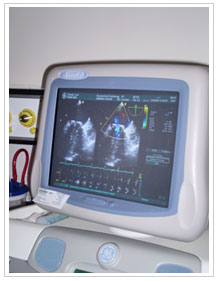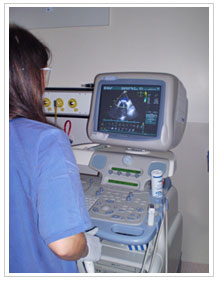Transoesophageal Echocardiogram
What is a Transoesophageal Echocardiogram?
How do I prepare for it?






How is it done?
Oxygen is given as a precaution. When you are adequately relaxed, a flexible tube (similar to the tube used to examine the stomach during endoscopy), is passed down the throat into the oesophagus (food pipe) and stomach which lie behind the heart. The end of the tube contains an ultrasound probe, which images the heart and its valves in great detail.
How long will it take?
While you will approximately spend 2-4 hours in the cardiac unit, the actual procedure takes approximately 20-30 minutes. The remainder of the time is spent in preparation and recovery.

After the procedure . .






What are the risks?
A transoesophageal echo is a relatively common and safe procedure with few complications. The most serious complication is trauma including perforation (puncture) of the oesophagus which occurs approximately 1 in every 10,000 cases. Other potential complications include breathing problems, rhythm disturbances, reactions to the medications and minor bleeding. In order to minimize these risks, trained staff are present during the procedure and will be monitoring your heart rate, blood pressure and breathing throughout.
If you have any further questions, please contact us at:
Queensland Cardiology
St Vincent’s Private Hospital Northside
North Medical Suites, Green Lifts Level 3,
627 Rode Road
Chermside Q 4032
(07) 3861 5522

